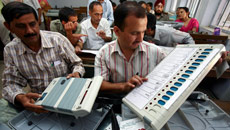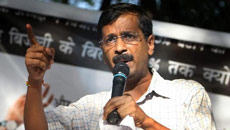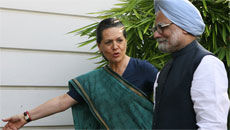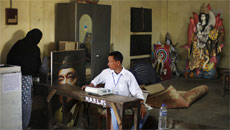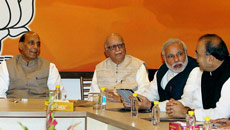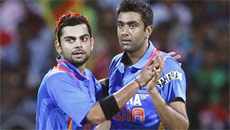I have an abiding memory of Manmohan Singh. It goes far back to the days when he was not the prime minister, not even the finance minister, when in the early '90s he took transformational steps to open up and liberalise a collapsing Indian economy and got his name etched in the history of global economics.
It was at a child's birthday party in a residential enclave dominated by government officers where my wife and I found ourselves standing next to a genial-looking Sikh in casual shirt and trousers, and his wife. After the cake was cut, I nudged my wife and told her who the Sikh gentleman was. She - and most other guests - of course, had not recognised him. He was, I told her, the man just named as the chief economic adviser to the new prime minister, Chandra Shekhar, who had replaced V.P. Singh at the head of a minority government propped up by the Congress in November 1990.
Our hosts introduced the Singhs as their neighbours. True to his character, Manmohan did not socialise much, smiled little, did some perfunctory neighbourly small talk and left.
The quiet academic, who had excelled both at Oxford and Cambridge universities, was once described by his alma mater, that honoured him after he became the prime minister, as someone who left the "scholar's life in the shade... to the dust and clamour of the political battle (in India)", driven by his "sense of duty to his country".
Even as his career graph in the next few years took this economics professor to dizzying levels of responsibility - from finance minister to member of the Congress Working Committee to Leader of Opposition in the Rajya Sabha to prime minister - it did little to change the taciturn man who spoke only when spoken to and who made little effort to strike up a conversation or engage an audience with his views.
But all those who have worked with him acknowledge him as a man of scholarship, dedication, intellect - the late national security adviser J.N. Dixit had rated his intellectual calibre "perhaps higher than Jawaharlal Nehru" - and tremendous hard work, who spent long hours into the night poring over government papers and pondering over policy moves.

On the last day of the 15th Lok Sabha, which also happened to be the last day in the House for Manmohan Singh as prime minister, BJP leader Arun Jaitley paid him tribute as a "man of scholarship" who was not a "natural leader" and who lacked the capacity to be the "driving force" for the government in parliament.
So, when senior Congress leader P.C. Chacko remarked recently that the "PM's silence had given room to many wrong interpretations against the government" and hinted that many in the party and government had "lost patience over his silence" and his failure to counter negative media publicity and opposition attacks, it seemed the Congress was now laying the blame for the party's erosion of popularity at his door.
Jairam Ramesh has ascribed the ruling party's plight to its failure in "perception management" and its inability to "sell effectively, more aggressively" its performance track record.
Manmohan Singh himself maintains that history will judge him - and his government - far better than his peers or the contemporary commentariat have done. He continues to maintain, quite contrary to popular perception of "policy paralysis", that "no other decade has recorded as much development as there has been in the last 10 years" of the UPA under his prime ministership.
However, the turning point for Manmohan Singh really came half-way into his second term, in his interaction with TV editors on Feb 16, 2011, when he sought to extenuate the mounting concerns about corruption in his government as an "aberration" that had to be tolerated for the sake of "coalition dharma", before giving expression to a plea of helplessness that "things are not entirely the way I would like them".
And in this admission perhaps lay the key to his government's crash of image and what his former media adviser, Sanjaya Baru, says led to his becoming an "object of ridicule".
If Manmohan Singh were better advised, especially in his second term (Baru quit just before the 2009 election), Manmohan may still have been the star brand on whose work the Congress rode to victory in 2009. The failure of the government, party and the prime minister himself to communicate its achievements and explain properly the perceived failures was its single-biggest undoing.
By that time the economic stagflation and the financial scandals (whose dimensions and impacts were highly exaggerated) had tarred the government's image irretrievably and allowed opponents and baiters to label Brand Manmohan as a "God that failed". This was in spite of the fact, as many pundits have testified, that "without Dr. Singh's reforms, India would not have emerged as a confident global power".
But, it is very clear that Manmohan Singh in UPA-II was not allowed to function and be his own man. He was merely a puppet on a string in the hands of Sonia Gandhi and he allowed her to influence, manipulate and use him at will through her party instruments. Whatever credit was due to him was deflected to Rahul Gandhi. Manmohan Singh, in the words of a Gandhi family associate of several decades, chose to surrender his authority and power at the altar of loyalty and obligation to the family that had anointed him.
And, at some point during the second term, the good doctor just gave up the battle. Although, at his farewell press conference as prime minister in January, Manmohan Singh maintained his government should not be judged by the corruption yardstick alone, an issue he thought had been overblown, and that the country would feel the real benefits of the UPA's policies in the years to come, the ballots had already been cast against his government in the minds of the people.

Should Manmohan Singh have quit when Rahul Gandhi derided a cabinet decision as "nonsense" even when he was in the US talking to President Obama? Baru thinks by not doing so and pledging his fealty to the dynasty, he had made a "fatal error of judgement" and, in the process, "devalued the office of prime minister".
But Manmohan Singh, true to the higher values of renunciation and self-abnegation, chose perhaps to follow the sublime Taoist philosophy. "A leader is best when people barely know he exists, when his work is done, his aim fulfilled, they will say: we did it ourselves."
And the Congress is trying to do just that by denying him the credit for the good work he did and then scapegoating him when things went wrong for the party.
